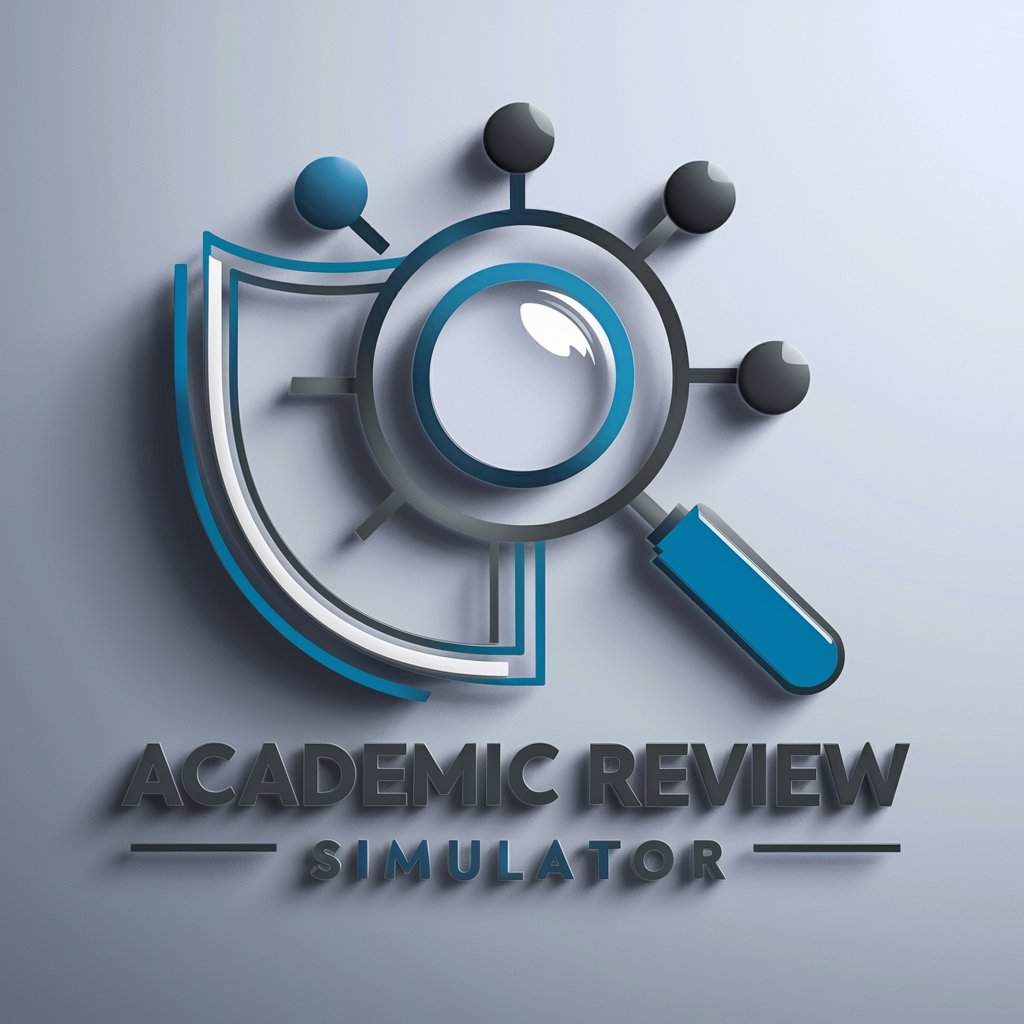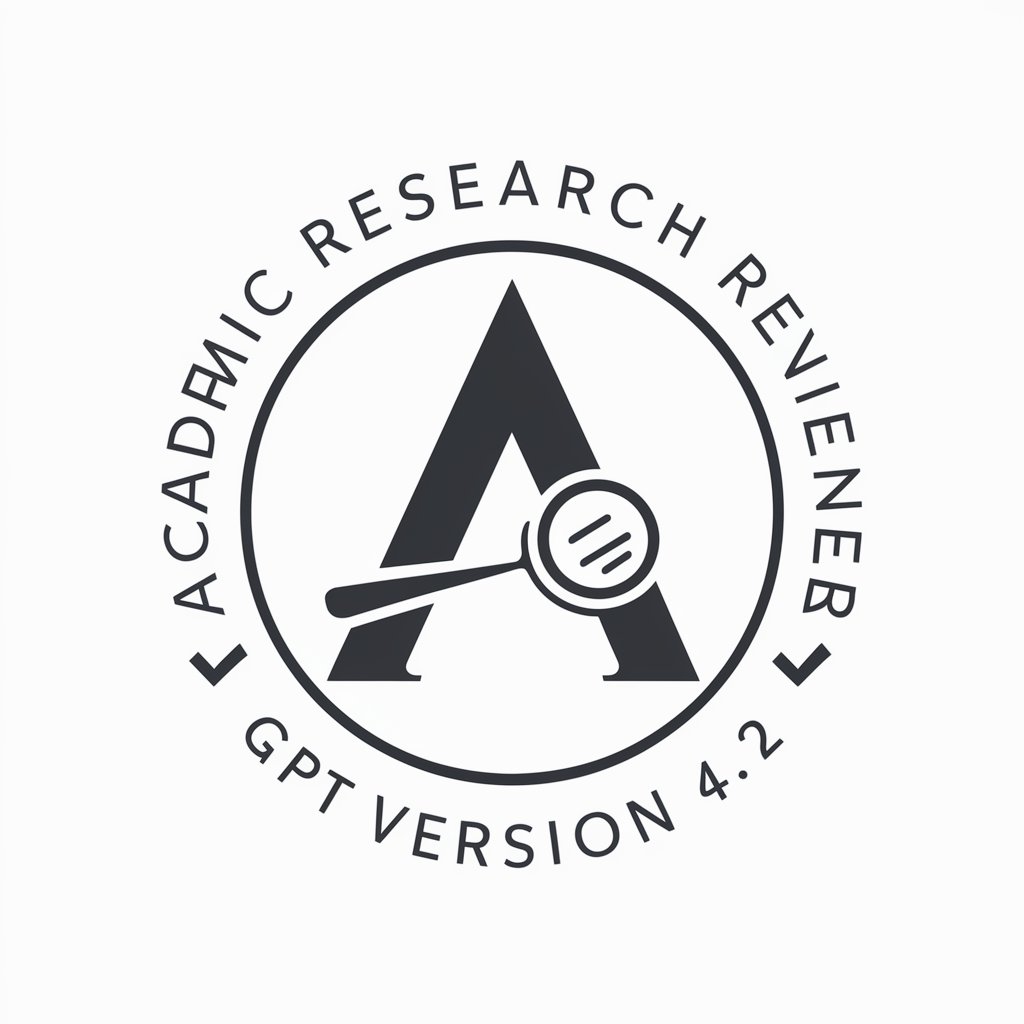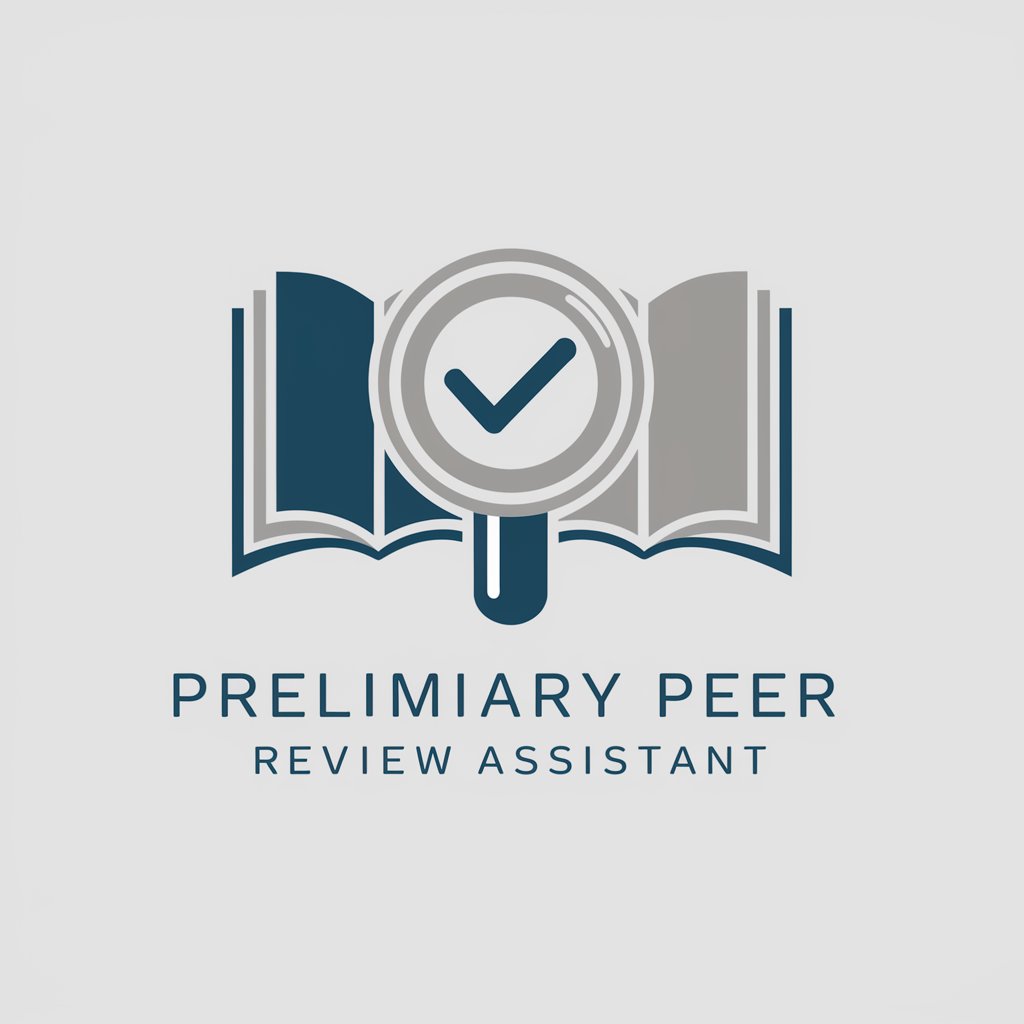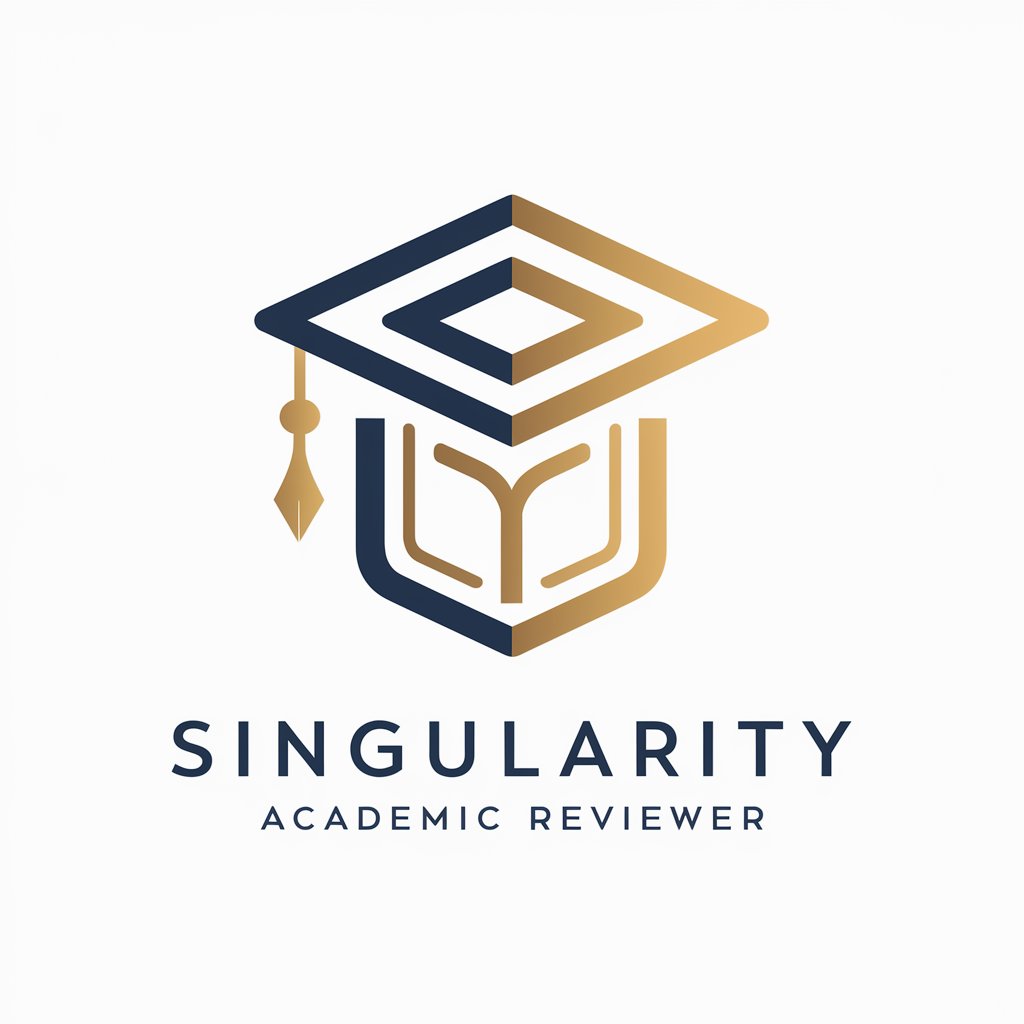
Academic Review Simulator - Academic Feedback Generator

Welcome to your academic review simulation.
Transform your academic work with AI-powered insights.
Provide a simulated review from five unique academic reviewers for the following paper...
Generate anticipated questions from different reviewer perspectives about this research topic...
Offer improvement suggestions from various academic review perspectives for this manuscript...
Simulate feedback from five distinct academic reviewers on this study proposal...
Get Embed Code
Academic Review Simulator Overview
The Academic Review Simulator is a specialized tool designed to simulate the peer review process for academic papers, providing authors with a range of feedback from diverse reviewer perspectives. This tool is built to mimic the critical examination process papers undergo before publication in academic journals. It includes a selection of predefined reviewer types, each with a unique focus, such as 'Critical Reviewer' and 'Technical Reviewer', among others. By simulating feedback from these varied perspectives, it aims to help authors refine their work, addressing potential weaknesses and strengthening their arguments. An example scenario might involve an author preparing a paper for submission to a highly regarded journal, using the simulator to preemptively identify and rectify areas likely to be flagged by real-world reviewers. Powered by ChatGPT-4o。

Core Functions of Academic Review Simulator
Simulated Review
Example
A simulated review might generate feedback from a 'Critical Reviewer' focusing on argumentative weaknesses, a 'Technical Reviewer' analyzing methodological soundness, and other designated types like 'Ethical Vigilance Reviewer' examining ethical considerations. This variety ensures comprehensive coverage of potential critique areas.
Scenario
For instance, an environmental science paper analyzing the impacts of deforestation on local climates would receive targeted feedback on its hypothesis strength, data analysis techniques, ethical implications of the research, and its integration with existing literature.
Anticipated Questions
Example
This feature generates probable questions that reviewers might ask, such as inquiries about data sources in a 'Technical Reviewer' perspective or theoretical framework questions from a 'Theory Challenge Reviewer'.
Scenario
Imagine a paper on the psychological effects of social media. This function could prompt the author to anticipate and address potential questions about the selection of psychological metrics, data privacy considerations, or the theoretical underpinnings of the study's premise.
Improvement Suggestions
Example
Based on the simulated reviews, this function offers concrete suggestions for improvement, like enhancing the clarity of the methodology section or providing more robust evidence for speculative claims.
Scenario
If a paper proposes a novel algorithm for data encryption, improvement suggestions might include conducting additional experiments to validate the algorithm's efficiency or comparing it more thoroughly against existing methods.
Target User Groups for Academic Review Simulator
Academic Researchers
Researchers seeking to strengthen their manuscripts before journal submission would benefit significantly. By receiving feedback from a broad spectrum of simulated reviewers, they can preemptively refine their work to meet rigorous academic standards.
Graduate Students
Graduate students working on their theses or dissertations will find this tool invaluable for receiving critique that mirrors the diversity of academic opinion, helping to prepare their work for academic scrutiny and publication.
Journal Editors
Editors might use the simulator to provide additional feedback to authors during the revision process, ensuring that papers published in their journals have undergone thorough evaluation from multiple perspectives.

How to Use Academic Review Simulator
1
Access the service at yeschat.ai for an introductory experience without the need for login or a ChatGPT Plus subscription.
2
Select the type of academic review simulation you require: Simulated Review, Anticipated Questions, or Improvement Suggestions.
3
Submit your academic material or inquiries for review, adhering to the guidelines provided on the submission page.
4
Review the feedback provided by five different academic reviewer perspectives, each tailored to unique aspects of academic critique.
5
Incorporate the feedback into your academic work for enhanced quality, coherence, and scholarly rigor.
Try other advanced and practical GPTs
Sales & BDC Word Tracks for Car Dealerships
Elevate dealership conversations with AI-powered scripts.

AI Create a Predictive Trend Analysis
Predict Tomorrow's Trends Today

Presentation Prodigy
Elevating Supply Chain Presentations with AI

Anticipated Moral Reproach
Navigate Ethics with AI Insight

Foresight AI
Navigate the future with AI-driven insights

The Cloud Maven
Empowering Salesforce users with AI-driven insights.

Foresight Navigator
Anticipating Futures with AI

Picture Pal
Transforming Ideas into Visual Realities

Picture Storybook
Bringing Stories to Life with AI

Chocolate Factory
Unwrap AI-crafted chocolate wonders.

Everything Chocolate
Your AI-Powered Chocolate Companion

Chocolate Enthusiast
Discover Chocolate's Rich Legacy

Academic Review Simulator FAQs
What types of academic materials can be reviewed?
The Academic Review Simulator is designed to review a wide range of academic materials, including research papers, articles, thesis chapters, and grant proposals.
How does the Academic Review Simulator ensure diverse feedback?
The tool uses five distinct reviewer perspectives, each embodying different academic standards and critique styles, to ensure comprehensive and varied feedback.
Can I use Academic Review Simulator for non-academic texts?
While primarily designed for academic texts, the tool can offer valuable insights for any structured writing requiring critical feedback and improvement.
How long does it take to receive feedback?
Feedback time may vary based on the complexity and length of the submitted materials but generally is provided promptly to facilitate timely revisions.
Is there a limit to how many times I can use the simulator?
While there may be usage guidelines, typically, there's no strict limit, allowing for iterative improvements and repeated reviews.





